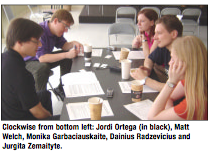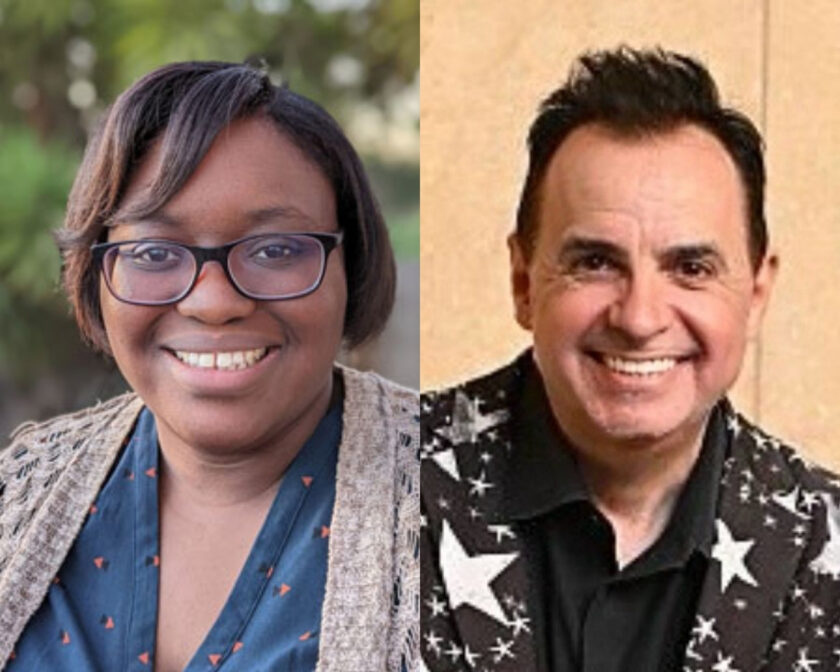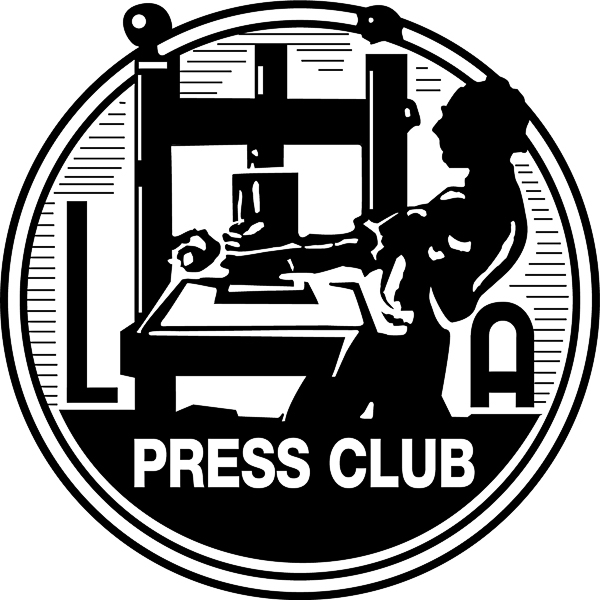Thursday, June 17, 2004 6:51 PM
BY JORDI ORTEGA
There is a way to measure the quality of journalism worldwide: by their ethics and passion for digging. These were the key agreements reached by a group of five international journal- ists who had a passionate two-hour dialogue on the state of the profession on May 7 at the LA Press Club in Hollywood.

Three media expert from Lithuania had been invited by the State Department on a three-week tour to see how news is practiced here. They included TV journalist Dainius Radzevicius, who is chairman of the Lithuanian Journalists Union and heads the PR Service of the Ministry of Justice; Jurgita Zemaityte, of Lithuanian National Radio; and Monika Garbaciauskaite, of Delfi News Portal. Two other participants were American journalist Matt Welch, columnist for Reason magazine and a news web blogger, and Jordi Ortega, an LA-based Spanish journalist and documentary filmmaker.
The three Lithuanians were born in the last of five decades of USSR occupation of Lithuania, and during their LA visit their country had just been named a member of the European Union. One may think that coming from a country with only 14 years of democra- cy, they had everything to learn from a land where a president can be impeached because of information learned by the media. But the guests displayed a skepticism that is a fresh reminder for many of us.
They were impressed that many US media sources are not run by corporations but by nonprofits and individuals. “But how can the ordinary person know which sources are truthful?” asked Zemaityte. Welch replied: “People are becoming sophisticated consumers of news, and now with the Internet, they are becoming producers of news.” There are, for example, about 200,000 web blogs in the US. Zemaityte questioned whether US media really are free, prompting Ortega to say: “Especially during March 2003, the crucial time of the escalation towards the war, I didn’t really see too much debate in the mainstream US media.” Garbaciauskaite added: “In Lithuania we had a debate about the war, and not only because Lithuanian soldiers were there. We talked about US commercial interests too,”
Ortega felt that American commercial news has the best technology and production skills, but “everybody does pretty much the same stories.” TV investigative journalism seems to only to be “done if somebody lobbies for an issue,” stated Radzevicius. “A typical Los Angeles television investigation is the hidden camera in a car to see if the valet parking guy steals from your glove compartment.” Ortega says, “Many of these investigations would make people laugh in Europe.”
Ortega felt that the difference between US and European journalism is that “in other countries, journalism is taught as a philosophy. … In the United States, it’s called ‘news industry.’”
However, Radzevicius saw the same approach to journalism throughout the Western World: “We have the same problems in journalism in Lithuania [as] in the USA or Spain. We must look at alternatives to do investigative journalism, to inform people about important issues, not about commercial or political interests but about things like children’s health or global warming. Maybe it will be the Internet.” Welch noted that a mix of many kinds of motives can produce good journalism—-even greed among journalists who want to rise in their careers. Said Welch: “I don’t dream of one standard. I prefer that there are several motivations, including greed.” Moreover, he said, “Narrow-minded political reasons can be excellent motivations for good journalism,” because reporters may work harder and dig further.
Whatever the definition of good journalism, the fraternal dialogue among the journalists left clear that free, tough, ethical journalism can be the pillar of any democracy.



